What is JSON - Working With JSON - MongoDB Tutorial
What is JSON ?
- JSON is known as JavaScript Object Notation.
- It provides a format for transporting and storing data.
- In logical manner, it is a lightweight human readable collection of data that can be accessed.
- From the user input it stores and generates the data. It can also verify and build the data.
- It transfers the data from server to client, client to server, server to server.
- It is easy to understand and self-describing. It is a lightweight data interchange format.
Syntax Rules
- Data is in name/value pairs.

- Data is separated by commas.

- Curly braces hold objects.

- Square brackets hold arrays

For example
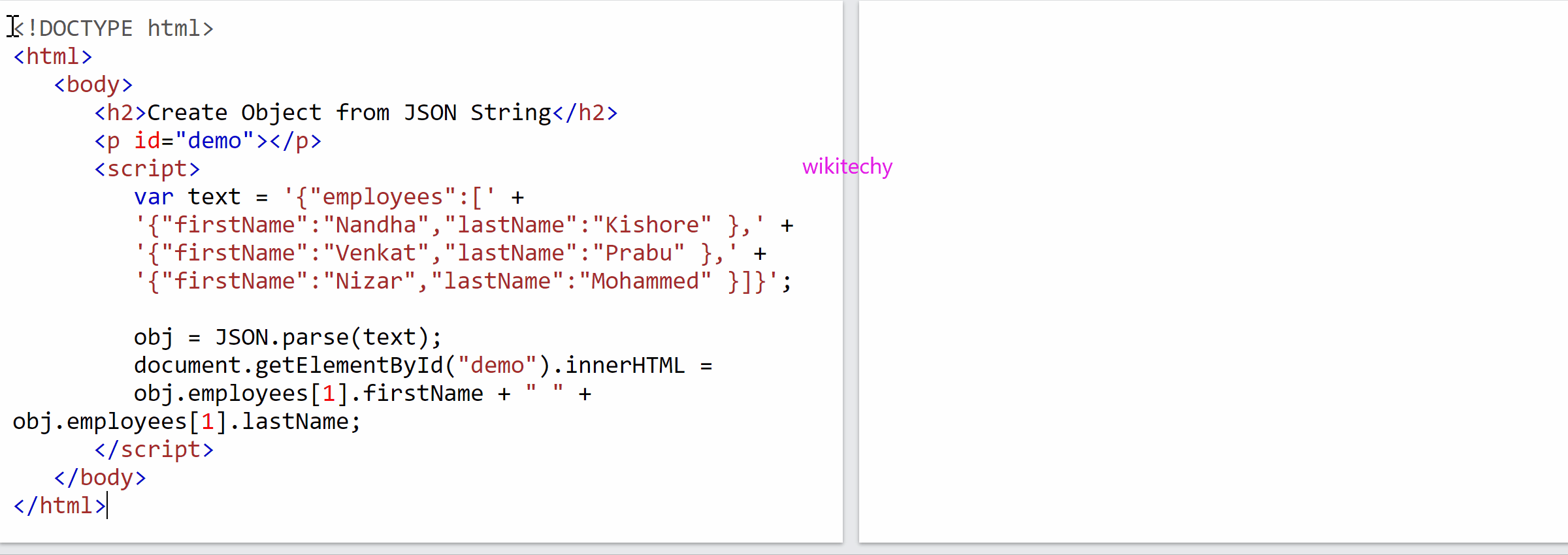
Sample Code
<!DOCTYPE html>
<html>
<body>
<h2>Create Object from JSON String</h2>
<p id="demo"></p>
<script>
let text = '{"employees":[' + '{"firstName":"Nandha","lastName":"Kishore" },' + '{"firstName":"Venkat","lastName":"prabu" },' + '{"firstName":"Nizar","lastName":"Mohammed" }]}';
const obj = JSON.parse(text);
document.getElementById("demo").innerHTML = obj.employees[1].firstName + " " + obj.employees[1].lastName;
</script>
</body>
</html>
Output
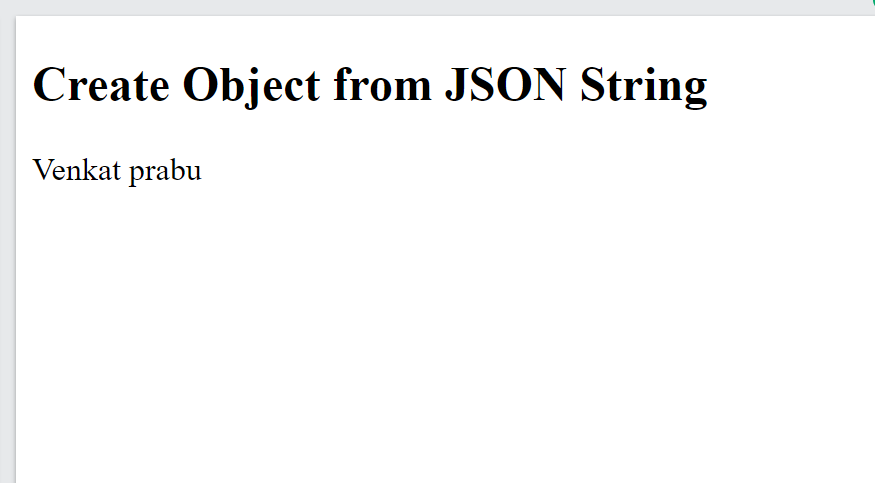
MongoDB Insert Collection
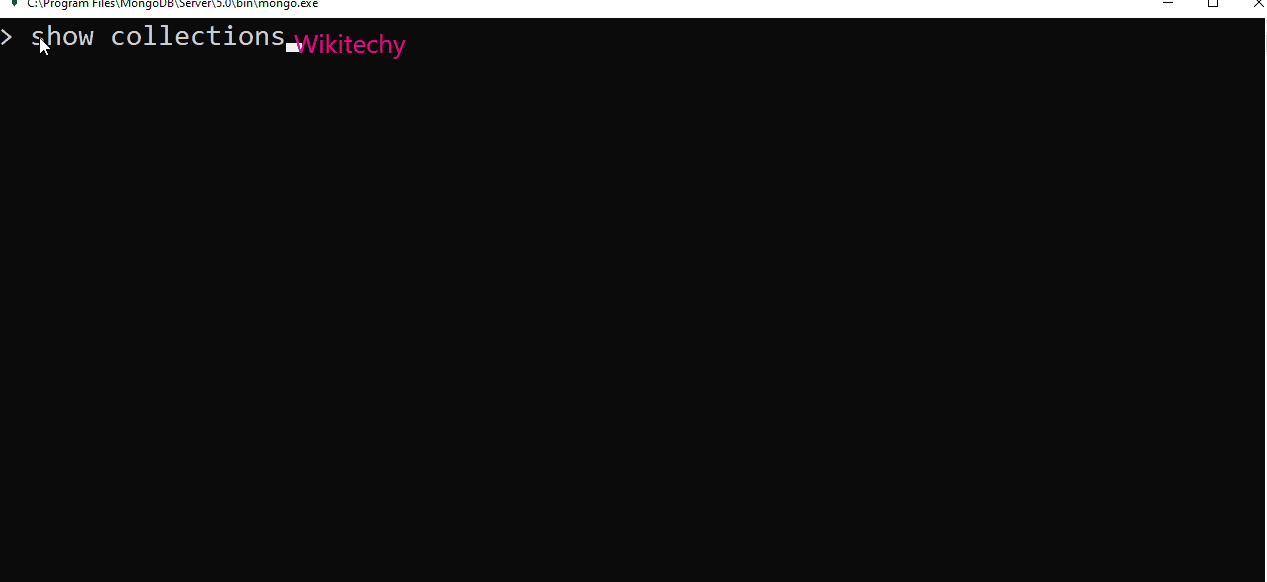
MongoDB Select
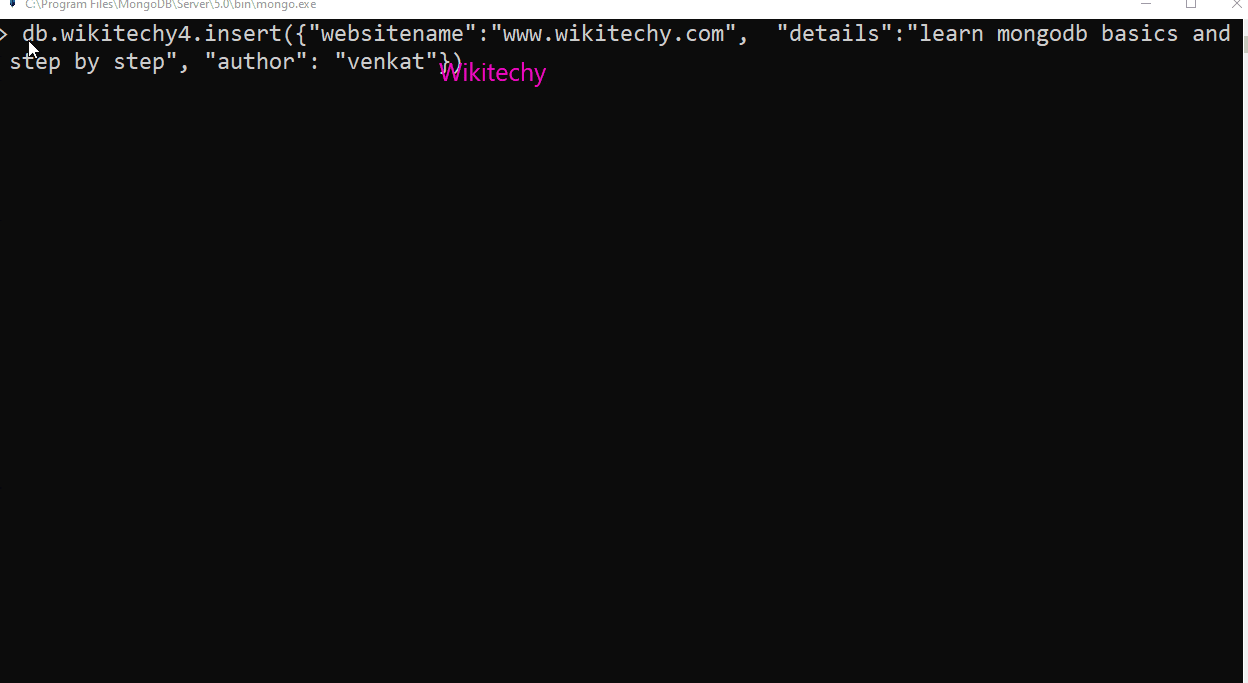
MongoDB Select Pretty

Features of JSON
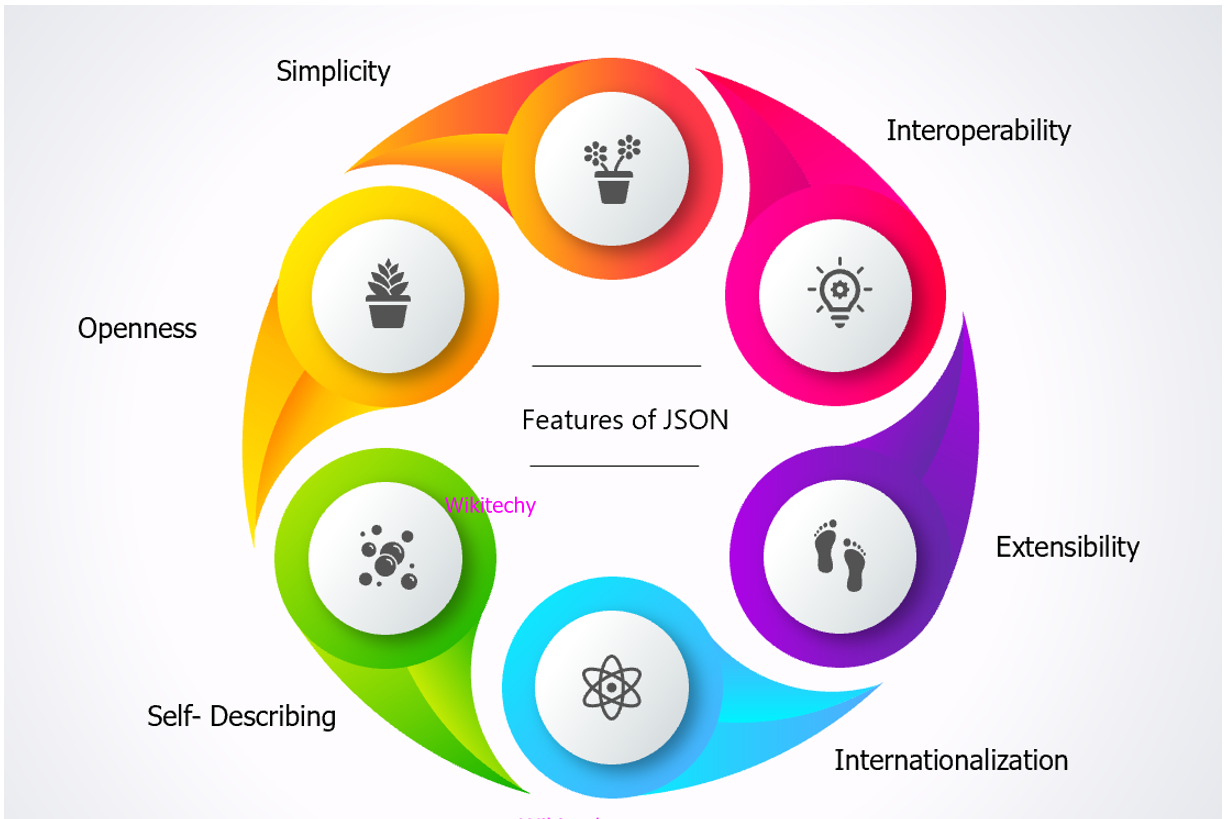
- Simplicity
- It is easy to understand.
- Openness
- It is receptive to new opinions, arguments, or ideas.
- Self-Describing
- It is the act or an instance of describing oneself.
- Internationalization
- It may be readily consumed across multiple countries.
- Extensibility
- It allows the addition of new functionalities or capability.
- Interoperability
- It is ability to use or work with the parts or equipment of another system.
Advantages of JSON
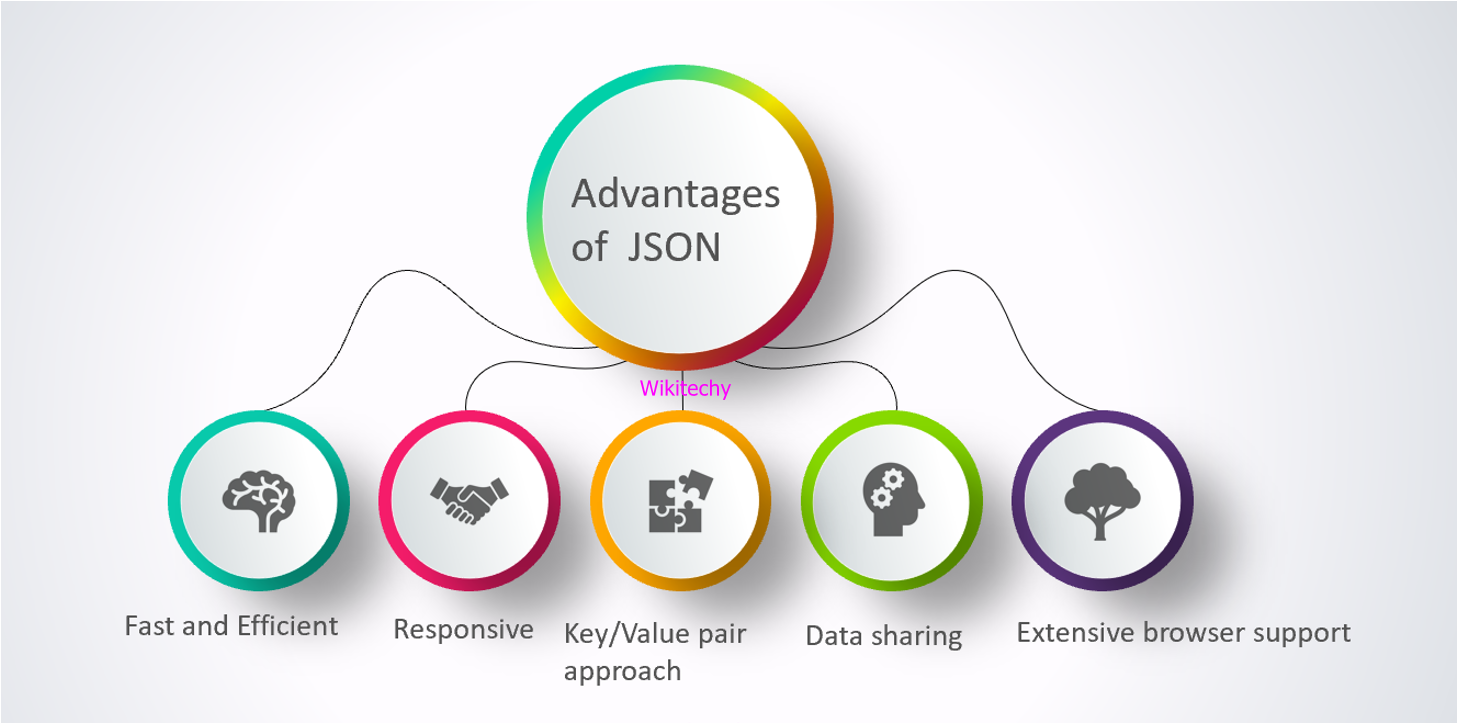
- Fast and sufficient
- It shares a lot of similarities with JavaScript, due to its JavaScript inspired syntax.
- They don’t know what type of data to expect, while it can be interrupted by any application.
- In Key/value pair, A colon separates the name of the field from its value.
- It becomes easy to understand. It is much faster than XML.
- Responsive
- While using JSON data can be easily parsed. Parsing doesn’t require any extra code.
- Response increases because it is a server-side coding.
- JSON has become one of the most widely accepted data exchange formats in result. It allows client to receive files quickly.
- Key/value Pair Approach
- The key and values are enclosed with double quotation marks (““).
- A comma (,) and a colon (:) separate them, because they are separate characters.
- It simplifies writing and reading.
- Data Sharing
- It is notable for its ability to share data to its other functions.
- In order to exchange data, they set up a connection between front end and back-end language.
- In JSON it is quite easy to serialize and de-serialize structured data.
- The front-end language has to be transacted into JSON text in order to serialize.
- Extensive browser support
- Compare to any specific application, JSON data format is independent.
- Most programming languages support JSON through functions or libraries.
Disadvantages of JSON
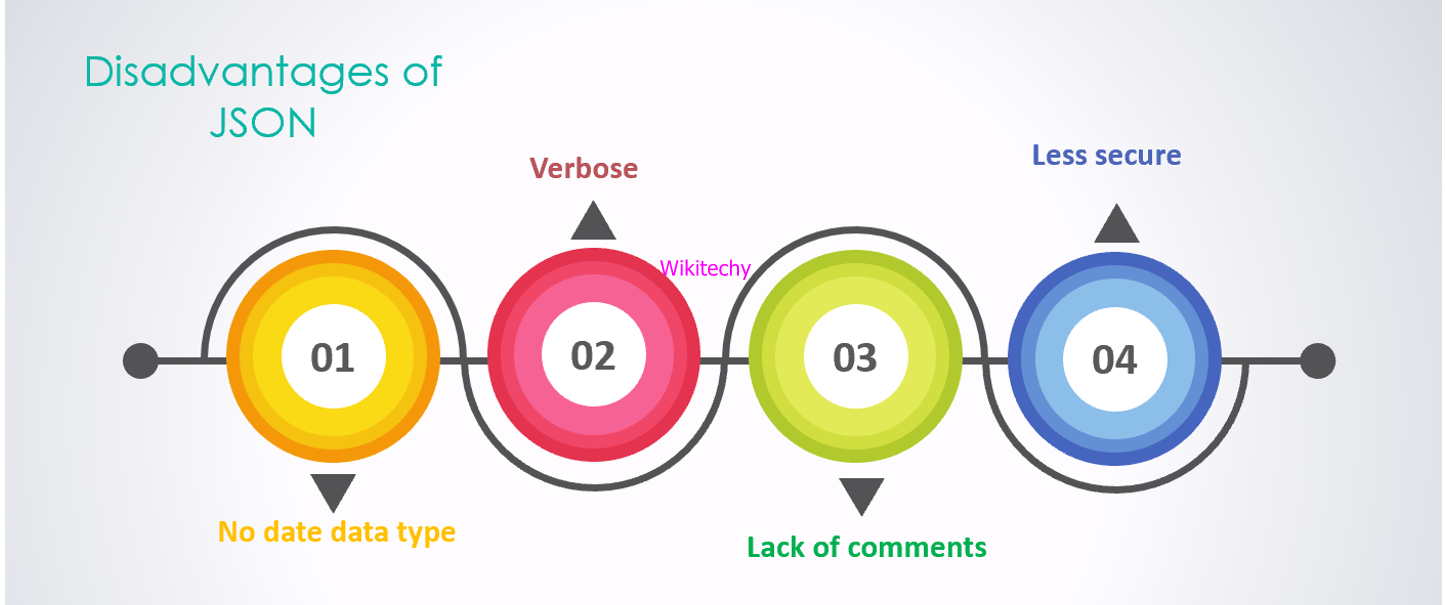
- No date data type
- Dates are not supported. It provides many different data types such as number, array, object, Boolean, string, and null.
- It requiring developers to look for alternatives, because Date data types are absent from JSON.
- For representing Date, string data type is one option.
- The XSLT template allows you to easily do this in XML format.
- Verbose
- We have emphasized JSON codes compactness and ease and it might surprise you to see verbosity on this list.
- This characteristic becomes disadvantage in particular while working on special projects.
- JSON code is imperceptible to most software, due to its lack of conciseness.
- Lack of comments
- The comments are crucial, in order to understand. It can only allow limited comments.
- As input some JSON libraries doesn’t accept the comments.
- It won’t be easy to figure out the data when its sure in other words.
- Less secure
- In this still some browsers does not offer native JSON support, despite the majority having it.
- JavaScript object is created by parsing JSON.
- If you choose to use this function you may increase your application security risks.
- These risks are similar to arise when the application takes user input.
